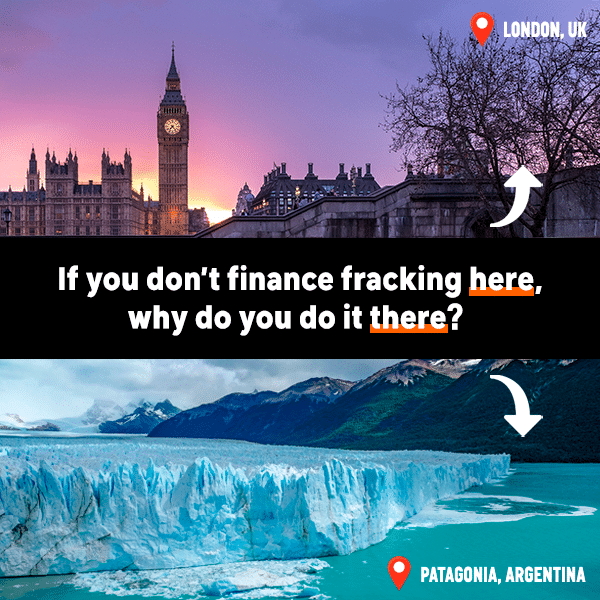350 Español

Open letter to the European citizens of the World
‘We find ourselves connected by mother earth, history and, in many cases, the same blood that flows throughout the length and breadth of the American continent. This is not the only thing we share: we also have the same hopes, fears and uncertainties. That is why we are writing to you: because we fear for our future and you have the power to give us back hope.
We need you to know what is happening in Argentina, as well as in other countries of the Global South that rely on investment from European financial institutions such as the ABP, HSBC, The Bank of England, ING, Deutsche Bank and Credit Suisse to function. We need you to act today to change our destiny. Only together we can get over this crisis and achieve a just recovery.
Fracking is an activity that turns gas and oil into a profitable business for a few large corporations, who are making poor countries like ours agree to subsidies, relax controls and pay for the infrastructure necessary for extraction. In exchange, our countries obtain a flow of money that is barely enough for subsistence. Fracking puts the health of our communities, the sustainability of our land and livelihoods, the future of our economies, and the safety of our water at risk.
Vaca Muerta – the site of fracking in Argentina – is not the synonym of progress shown in the international media. We have seen sick families living a few meters away from the wells. We have seen houses shaking in Sauzal Bonito and Añelo, in the province of Neuquén, in a region with no earthquakes before fracking. We have experienced oil spills, contamination of aquifers, neglect of waste treatment, wells in protected areas and native lands. We also see massive mobilizations in defense of the water.
Between 2015 and 2018, the oil companies themselves admit that there were 3,368 “environmental incidents” in Vaca Muerta. During 2018 there were 934. Many of them are hidden under the cover of simulations so that the population does not complain. Nobody does anything about it because people in power who should be controlling the industry too often have connections to it.
In Luján de Cuyo, in Mendoza, we know that there are high rates of leukemia around a refinery, which mainly affects children living near the wells. In Allen, Río Negro, we see people going in and out of the first aid room as if it were rush hour at a train station. We see workers with lung conditions. Numerous cases of cancer. Children with serious asthma problems due to the invisible and highly toxic gases that come from the wells and that, once outside, remain at a short distance from the surface, in the air they breathe.
However, we do not have statistics on fracking-related diseases, because after the first consultation, patients are referred so that the case doesn’t appear on their medical records. People are getting sick and we have no resources to help them.
The neighbors have to drink expensive bottled water, because they can no longer take it from the wells in their own homes. “It’s not good enough for the plants” they say. Some cannot afford to pay for water, putting their health at risk.
As there is no investment in the extension of the local natural gas and water networks, the oil companies hand out firewood at the beginning of winter to keep people quiet. In Allen, until a few years ago there was not even a bus terminal: to get in and out of the city, it was necessary to wait at a gas station.
Although Neuquén is the province with the most wells and the most emblematic of fracking in Argentina, it is also one of the provinces with the highest per capita debt, since in all these years of exploitation it has not been able to generate a reserve of economical resources. Neuquén continues to operate on the basis of debt, and continues to lack infrastructure and services. This is fracking.
Our desperation is great, because we see how the lives of our communities are being destroyed by a predatory activity.
UK companies had intended to invest billions in clean energy in Argentina, but switched their investment to fracking. Why, if we still have great potential to develop renewable energies? We could generate much more solar power than Germany! We want to reactivate our local economies, take care of our water, and say “no” to activities that harm us because we have other possibilities.
That is why we ask for your help. Don’t let institutions such as the ABP, HSBC, The Bank of England, ING, Deutsche Bank and Credit Suisse use your money to finance things you would not want for you or your children. In the UK, France, Germany, Switzerland, Italy, France, Bulgaria and the Czech Republic fracking has already been banned because of the risks it poses to their populations and to climate change, so why do fracking investments continue in remote places? Fossil fuel companies believe that our cries will not be heard from afar. But, even if they ignore us, the damage produced by their industry will reach all parts of the planet.
You have the power to choose how you want to invest your money, whether in fracking or in a real opportunity for the countries from the Global South. We need to work together for a just recovery before the places affected by the industry become a barren land where nothing good can grow.
Let’s say “No to fracking”: not here, not there, not now, not ever. And instead, let’s work together for a just recovery.

Take Action to End Fossil Finance
It’s simple — to prevent devastating climate breakdown, we have to end all finance to fossil fuels.
Public and private banks pour hundreds of billions of euros each year into the fossil industry and the only way to stop them is through sustained public organising and people power.
Sign up here to join the movement and receive emails about upcoming actions to take.
Sign this letter
NOT IN THIS LIST YET? ADD YOUR ORGANISATION
350.org América Latina | 350.org Argentina | 350.org Bolivia | 350.org Brasil | Comité Nacional de Lucha Contra el Cambio Climático – CNLCC (República Dominicana) | Confederación Mapuche de Neuquén (Argentina) | Corporación Defensora del Agua, Territorio y Ecosistemas – CORDATEC (Colombia) | CRY-GEAM (Colombia) | El Puente – Enlace Latino de Acción Climática (Puerto Rico) | Extinction Rebellion Bogotá (Colombia) | Extinction Rebellion Colombia | FUDEM – Fundación para el Desarrollo Estratégico de Mendoza (Argentina) | Fundación CAUCE (Argentina) | Fundación Gaia Pacha (Bolivia) | Fridays For Future Argentina | Grupo de Financiamiento Climático para Latinoamérica y el Caribe (GFLAC) | Leave it in the Ground Initiative – LINGO (México) | Organización Equilibrium Global | Primero Angostura – Bloque Político – Villa La Angostura (Argentina) | Programa de Extensión “Por una nueva economía, humana y sustentable” de la carrera de Comunicación Social – UNER (Argentina) | Rebelión o Extinción Argentina (XR Argentina) | Red Antifracking – Entre Ríos (Argentina) | TierrActiva (Perú) |
Members of civil society:
Mario Álvarez – Ex Concejal General Roca – Río Negro (Argentina) | Dina Argueta – Diputada de la Asamblea Legislativa (El Salvador) | Andrea M. Blandini – Senadora Provincial por Mendoza (Argentina) | José Luis Bonomi – FUDEM (Argentina) | Marcelo Cossar – Diputado Provincial por Córdoba (Argentina) | Aroa De la Fuente – Coordinadora de Estrategias y Fortalecimiento Institucional GFLAC (México) | Jorge Andrés Difonso – Diputado Provincial por Mendoza (Argentina) | Juan José Dutto – Ex Concejal y Ex Defensor del Pueblo de Neuquén (Argentina) | Luis Lafferriere – Profesor Titular de Economía (Argentina) | Gabriela Lena – Diputada Provincial por Entre Ríos (Argentina) | Gustavo Majstruk – Diputado Provincial por Mendoza (Argentina) | Pablo Micheli – Secretario General de CTA (Argentina) | Jorge Nawel – Coordinador de la Confederación Mapuche de Neuquén (Argentina) | Agustina Vaca Arenaza – Concejal Villa La Angostura (Argentina) | Ignacio Zavaleta – Coordinador Legisladores x el Ambiente (Argentina)
Contact 350 Latin America
We are here to work together as a worldwide network. Contact us if you want to listen to local people and activists. We have to act together, we have to act now!
Feel free to touch base! You can email us by clicking here